With the advent of technology, imagining a life with electricity is easier. Basic survival depends on electricity, from cooking, paying bills, and having access to medical appliances to finances. However, some areas either need full access to electricity or are prone to frequent power cuts due to unforeseen weather conditions. To understand how to live without electricity, you should always be mentally and physically prepared, especially if you might go through a power outage. Having an emergency supply kit for your basic survival is something you should have handy.
Living without electricity can be challenging, as power is integral to everyone’s life. In such cases, reliable power sources like the Jackery Solar Generator can elevate your off-grid experiences. With its commitment to sustainability, the Jackery Solar Generator is a next-gen generator that provides a green power solution to power your light - or heavy-duty devices during power outages or off-grid.
The Influences of Living Without Electricity
If you imagine a life without electricity, you might start getting many questions like how to cook, work, or heat your house. Although digitization has brought up more automated devices than ever before, many cities worldwide are still vulnerable to power cuts. Most cities use electricity to water the apartments through electric pumps, heat their houses through systems, and store food/water in refrigerators. Even a society functions based on electricity, such as payment systems in grocery stores, medical appliances running in the hospital, water management dependent on pressure piping, etc.
Electricity allows us to power technology, turn on the central heating system at home, maintain hygiene, preserve food, and much more. However, as each coin has two sides, living without electricity has some positive and negative influences.
Positive Influence Of Living Without Electricity
Living without electricity might be difficult at first, but in the long term, it is better for the environment and human health. You can reduce reliance on electricity by replacing it with other energy sources like wood, biogas, wood fire, etc. There will be less pollution and global warming, and since dependency on technology will be reduced, people will spend more quality time with each other. There is one less bill, and one may start to find creative ways to survive.
Negative Influence Of Living Without Electricity
Many people around the world still lack access to electricity. Thousands of families experience power blackouts due to natural disasters or bad weather, disrupting their lifestyles. With electricity, it might be easier to withdraw cash during emergencies, water pumping and purification would be more accessible, and factories, lifts, petrol pumps, etc., would not function.
What Are The Challenges of Living Without Electricity?
As most of our life tasks depend upon electricity, living without it would be challenging for basic survival. Walking in the dark evening with no light to guide us would make many vulnerable targets.
Living without electricity poses severe challenges in one’s life. In a year of blackout that knocks the grid, for example, many people would die through starvation, societal collapse, and disease. Other than that, the stock market would crash, crashing into every other global market. Food and finance industries would struggle to function as they are run by electricity. There would be no means to have entertainment without the internet, and you might also be unable to refill critical prescriptions.
Living without electricity would be a hit on the life of an individual and society. Most transportation would cease, and you couldn’t fuel your car. In case of a mass failure, there would be no cell phones working as the lines would be down. Many states in the US are severely affected by disasters and spend weeks and even months without electricity. But with basic survival skills and supply support, it can sometimes be possible to live without electricity.
How to Live Without Electricity?
When you know you might go through a power outage in the future, you should be prepared to live comfortably without electricity. Currently, it might sound unnatural, but as a matter of fact, living without electricity is something humans have done in the past. There are two main case scenarios for living without electricity: power outage and living off the grid.
Power outage refers to the partial or complete loss of power supply to the population, businesses, and critical systems. Some causes of power outages include natural disasters, cyber or physical attacks, organizational errors, accidents, and many more. Power outages may initiate from the supply and demand side and manifest in various forms, like blackouts or brownouts. They can be local, national, or even global.
Another scenario is living off the grid, which means not being hooked to utilities by wires, pipes, or cables. Simply put, when people go off the grid, they rely not on conventional energy but on renewable energy sources such as the sun and wind. When an apartment or a building is off the grid, it doesn’t connect with the utility. People living off the grid can generate their electricity by installing solar panels or an on-site generator to use electricity for cooking, heating, etc.
Power outages can disrupt daily life for communities highly dependent on electricity. Areas with outdated infrastructure are even more vulnerable during extreme weather or peak usage. Those going off the grid rely more on alternative energy sources such as solar, wind, or hydropower, making self-sufficiency necessary.
Power Outage: How to Live Without Electricity?
Unforeseen weather conditions like tornadoes, hurricanes, flooding, or thunderstorms can destroy your region's power. If a power grid has too many AC units, even that can cause a power outage. Safety issues such as darkness, food unavailability, and staying warm should be a priority, and here are six tips that would help you live without electricity for a short time.
Prepare An Emergency Supply Kit
All creature comforts become unavailable without power, including heat, cooling, flushable toilets, etc. You must have many things on hand to prepare for these situations and live comfortably. You can fill the bathtub and keep several gallons to drink, flush the toilet, and brush your teeth. You can use electric candles for lightning, a lighter for a stove or fireplace, extra batteries and flashlights, a hand crank radio, wood, cutleries, a hand grinder, a kettle, Jackery Solar Generator for backup power, non-perishable food, etc.
Food Safety & Storage
You can plant your kitchen garden instead of purchasing food from the store. Not only will this keep you stocked up for emergencies, but you will also have fresh and organic fruits and vegetables. To avoid contamination, cook perishable food on the first day of blackout. To preserve food, you can put it in pressure canners. Another way to store food without using electricity is to dry it. To keep your refrigerator charged, you can rely upon emergency power backup solutions like the Jackery Solar Generator, ideally designed to provide power comfort during power outages.
Write Important Information On Paper
If the power cut is extended, your phone can run out of battery, and you cannot depend on it indefinitely. In that case, always keep a paper file ready with important information, including phone numbers and addresses of schools, hospitals, storm shelters, or places with power.
Use a Generator
Solar generators like Jackery Solar Generator provide an eco-friendly power mode. Once fully solar-charged, they can charge most heavy and light devices and keep you safe and connected during outages. Jackery Solar Generators emit no toxic gases and operate entirely on renewable sources of energy.
Unplug Appliances
Unplug your devices, such as a microwave, television, or refrigerator, to prevent potential electric damage. When power lines are damaged, a surge in the line can occur. You can also shut off the main circuit breaker.
Check On Your Neighbors
Once the basic survival kit is ready to ensure safety and comfort during outages, communicate with your neighbors and ask if they need help. As elderly neighbors may find it challenging to navigate in the dark, you can devise a system to keep them updated. If you plan to leave the area, let the neighbors know. If you cook extra food, you can only store it for up to two hours. Instead of throwing it away, you can share it with neighbors.

Off-Grid Living: How to Live Without Electricity?
For centuries, people have deliberately lived off-grid without electricity, with an alternative energy source. Many people are also living off-grid, which has benefited them economically, environmentally, and socially. While there might be certain advantages to this, you must be aware of the cons of off-grid living. Here are six aspects to consider when living off the grid without electricity.
Alternative Power Source
Some popular alternative energy choices include solar power, wind turbines, hydropower, and hybrid energy sources that work well in winter and summer. Solar generators like the Jackery Solar Generators can also be a crucial alternative for off-grid living, as they work using solar energy. Hydropower can be a great alternative if your property has a lake or river nearby. Let’s look at some pros and cons of alternative power sources.
Pros
Renewable and clean energy sources are eco-friendly and have low operating costs. They efficiently use land space and are noise-free. Energy is free, so you just have to bear the operational cost. Dependency upon non-renewable energy reduces, the power bill reduces, and long-term savings exist.
Cons
Initially, the upfront costs can be high, and there can be days when the sun does not shine to recharge your solar power source. Once the source is damaged, there may be limited disposal or recycling options. Wind energy can have adverse environmental impacts, such as noise and visual pollution.
Cooking
You can use a rocket stove or a two-burner propane stove for cooking. A wood cookstove can be used for cooking, baking, and boiling water.
Pros
If you are habitual in living off-grid, you won’t get bothered about power outages. Using renewable resources can reduce your carbon footprint. Since there is no dependency upon electricity, it will save cost on utility bills.
Cons
Gathering resources for long-term off-grid cooking can be tiring, labor-intensive, and time-consuming. Cooking on a propane or wood stove might increase the cooking time, and the food might lose its nutrients. Burning wood frequently can cause air pollution.
Heating
Wood-burning stoves and fireplaces are excellent heat sources for your home. However, always remember to stock dry wood for winter. Solar thermal and biomass are other alternative heating methods equally capable of supplying heat. Renewable solar generators like the Jackery Solar Generator can charge your heater, so you can use it whenever and wherever you want.
Pros
Using wood piles for heating is easy and cheap. Using natural and renewable resources is better for the environment as well.
Cons
The upfront cost of a biomass boiler would be high initially, and not all property owners would find it suitable. Moreover, these systems require large spaces, and fuel delivery and storage can be challenging.
Gardening
Gardening is one such skill that can provide multiple benefits. Not only does it provide organic and fresh food, but spending time in nature is mentally, physically, and emotionally rewarding. You can grow vegetables like tomatoes, beans, spinach, lettuce, and coriander and create garden beds with nutrient-rich soil mixtures.
Pros
Gardening is also one of the voluntary positions that is off-grid. You can join a forest area garden and work with maintenance in exchange for free food and excess food for a kitchen. Making or growing a kitchen garden is less expensive, as you only need a patch of land, crop seeds, and essential tools.
Cons
Being off-grid is very physical, and gardening requires more work, such as removing weeds, tilling the soil, and amending the soil, which can get you tired at specific points. You may also need to check your garden frequently, as insects and small animals can destroy it. Gardening can be challenging if you live in an area with poor drainage.
Making Money
While it is possible to escape the traditional monetary systems by engaging in work exchanges and building your own sustainable life, you do not have to cut off ties with money entirely. If you are creative and a nature lover, you can craft and sell valuable items from natural materials in local stores. You can turn your scenic land or home into a homestay and rent tourist space.
Pros
If you are into trading, you can keep your devices like phones, tablets, or laptops charged using a reliable solar generator like the Jackery Solar Generator and spend some time investing in stocks. This unlocks a new stream of income. Since off-grid living reduces your expenses significantly, you do not need to worry much about making money. Off-grid communities can get mutual support through networking and bartering systems.
Cons
Some resources, like materials and technology, can be expensive and require extra money. Finding a reliable and stable income might be challenging in the early stages.
Insulation
You can winterize your house by adding extra insulation in the attic and around doorways. This will allow you to escape as little heat as possible and use a window insulator kit to block air leaks.
Pros
Even if your home does not have a central heating system, insulating it can keep you warm during winter. Various types of insulation, including rolls, concrete blocks, foams, fiber, sprayed, etc., serve multiple purposes, such as high thermal resistance, drought proofing, preventing heat flow, etc.
Cons
If insulation gets wet, it can become prone to mold and rot. Wall insulation types are primarily impermeable, which can cause moisture. Fiberglass can irritate your skin and lungs if you contact it directly. Some insulation, like polyurethane, isn’t very thick and can pull away from framing with age.

Jackery Solar Generators - Portable Power Supplies
Jackery is a global manufacturer of solar generators, portable power stations, and solar panels that have reduced tons of carbon emissions to date. They are fumes-free, noise-free, and operate cleanly. Jackery Solar Generator combines Jackery Portable Power Station and Jackery SolarSaga Solar Panels, which are solar efficient and have quick charging power.
Solar panels capture solar energy and store it in a portable power station that converts solar energy into electrical energy. The power station converts DC into AC and can power your devices during blackouts or off-grid living. One benefit of using Jackery Solar Generator is that it can power many small and large appliances.
Jackery Solar Generator 3000 Pro
The Jackery Solar Generator 3000 Pro has a large capacity and can charge up to 99% of devices during a power outage or off-grid. It is lightweight and portable, with a pull rod and double wheels that make it easy to carry around. It is equally functional in winter and summer, making you comfortable without electricity.
Appliance running time:
- Phone (30W): 85.68H
- Desk Lamp (60W): 42.84H
- Refrigerator (520W): 4.94H
- Heater (1800W): 1.42H

Customer Review
“ This machine is amazing—a great alternative to propane and gas. Quiet and solar charging capable. Recommend to everyone!” -- Ben Ceralde
Jackery Solar Generator 2000 Plus
The Jackery Solar Generator 2000 Plus has multiple benefits and can be used in versatile scenarios. Due to its leaping performance, it can charge heavy-duty appliances to safeguard you from power cuts. Its solar charging capability is ultra-fast, enabling power to become independent. It is easy to expand and can prepare you for home backup power during off-grid living.
Appliance running time:
- Kettle (850W): 2.04H
- Electric Oven (800W): 2.17H
- Laptop (60W): 28.93

Customer Review
“Excellent quality, the battery lasts a very long time. It is straightforward to move around with the built-in tires. I love the upgradeability. The best solar generator I have ever had.” -- Marc
Jackery Solar Generator 2000 Plus Kit (4kWh)
The sustainable next-gen generator, Jackery Solar Generator 2000 Plus Kit (4kWh), can be a valuable addition to your emergency supply kit when there is no electricity. This solar generator is fumes-free, cost-effective, whisper-pretty, and easy to operate. It combines a battery pack and solar panels, elevating off-grid living to the next level.
Appliance running time:
- Phone (29W): 59.87H
- Flashlight (10W): 173.63H
- Power Bank (80W): 21.7H

Customer Review
“The 2000 Plus battery pack is an excellent way to expand your storage if you already have one of the Jackery Solar Generators in the ‘Plus’ line. No frills, easy-to-use connections, and charging times were as reported.” -- Patrick Walz
How to Live Without Electricity FAQs
What size of solar generator do I need for a power outage? Or for off-grid living?
To determine the exact size you need, consider the number of devices you use and how long you use them.
For example, a Jackery Solar Generator 3000 Pro can charge a refrigerator (520W) and phone (29W) in,
Working Time = Capacity in Wh × 0.85 / Operating wattage of the appliances.
So, Working time = 3024Wh × 0.85 / 549W = 4.68 H
Note: While charging the devices, there will be some power loss, therefore multiplied by 0.85.
How do I survive without electricity?
To survive without electricity, prepare an emergency supply kit, store your food in pressure cans, write important information in a diary or a paper, use a solar generator for emergency power backup, and store gallons of water.
What do you do when there is no electricity?
Call your local utility and keep yourself updated; unplug your appliances, ensure your family's safety, and carry a flashlight when going out in the dark.
How do you start living off the grid?
To start living off the grid, you need alternate power sources like solar, wind, etc., keep wood piles stocked for cooking and heating, start gardening and growing your vegetables, find sources for alternate income, and insulate your home.
Can you flush the toilet when the power is out?
You can fill your bathtub and store extra water to flush the toilet and other uses.
Guide to Living Without Electricity
Renewable and non-renewable resources are present around us globally. Although electricity plays an integral part in your lives, you can choose to reduce your consumption and go off-grid once a month. It will not only help you sustain an active lifecycle, but this way, you can contribute to a healthy and greener environment. Understanding how to live without electricity and taking action before an unfavorable situation arrives is always a wise thing to do. Various power sources such as solar, wind, or hydro can be implemented daily while considering the implications. Renewable energy solutions like the Jackery Solar Generator are cost-effective, safe, and eco-friendly ways to power up your devices during blackouts or off-grid living.

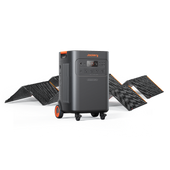











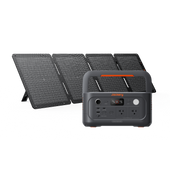





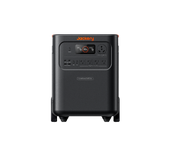
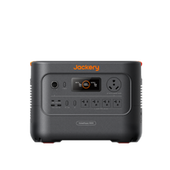





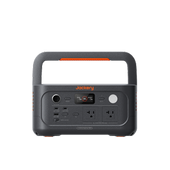





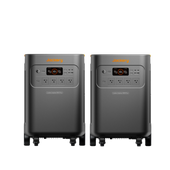
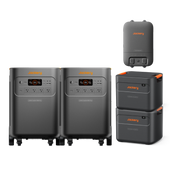





![[Add - on] Jackery Manual Transfer Switch for Explorer 5000 Plus - Jackery](http://www.jackery.com/cdn/shop/files/add-on-jackery-manual-transfer-switch-for-explorer-5000-plus-9017324.png?v=1754016782&width=170)
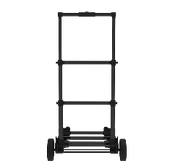
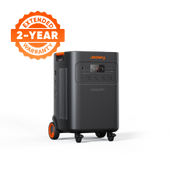
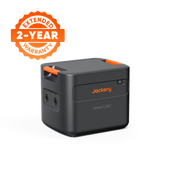






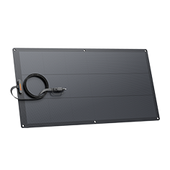
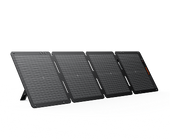




















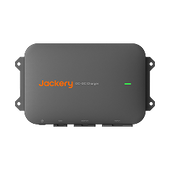




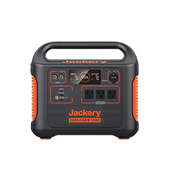







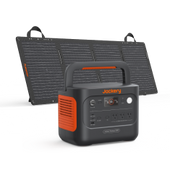
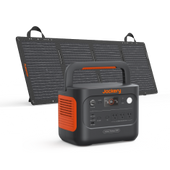





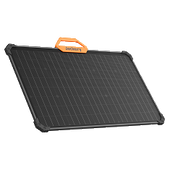


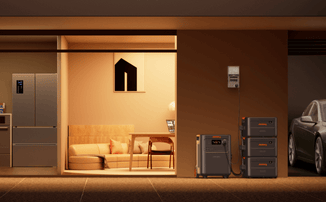













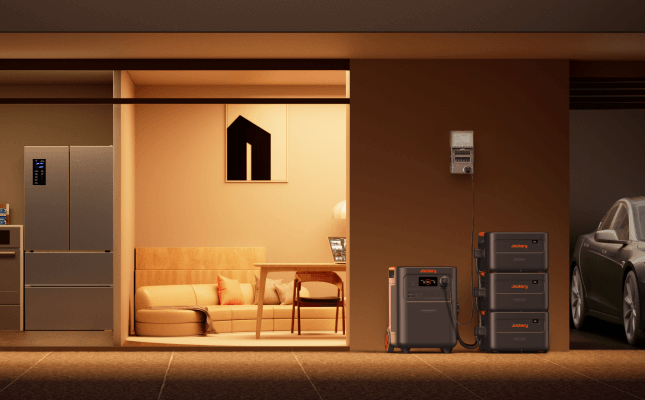


















![How to Live Without Electricity [Complete Guide]](http://www.jackery.com/cdn/shop/articles/how-to-live-without-electricity-complete-guide-4515819.jpg?v=1754018202)







Leave a comment